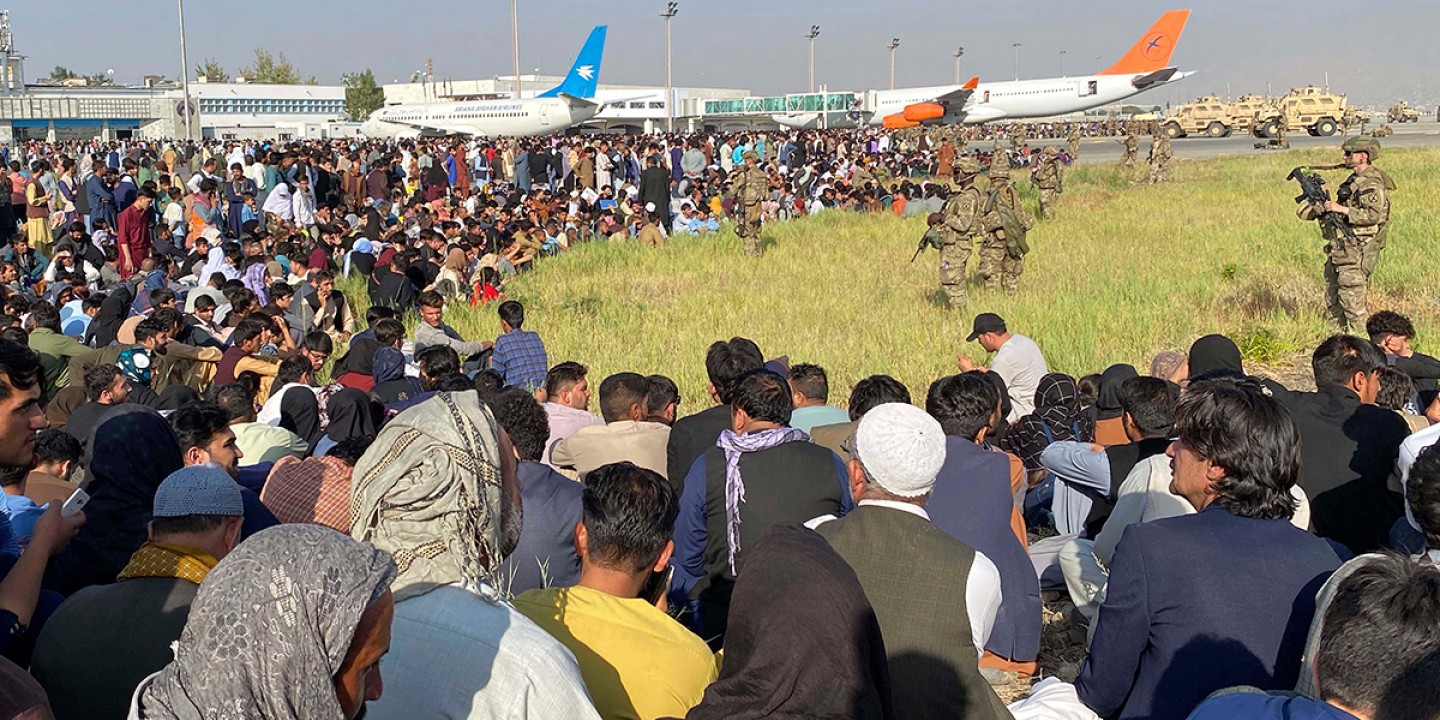The first question about the war in Afghanistan is why we were even there
There was never a good way to leave—or stay.

The images of desperation and violence at the Kabul airport are shocking. What message should we take from them? The consensus view seems to be that the US occupation needed to end, but the Biden administration botched the exit. Why did it drag its feet on fast-tracking refugee applications? Why, when US diplomats in Kabul asked for evacuation prep, did their request languish in Washington? Why didn’t President Biden change course in July, when intelligence indicated the Afghan military was about to collapse?
These questions need to be answered. Yet we should be wary of the implication that often comes with them: that a different timetable or procedure could have prevented the US military from creating chaos by leaving—or, for that matter, by staying. The main question about this war has never been when or how to leave. It’s this: Why were we even there?
Read our latest issue or browse back issues.
Twenty years ago this month, the United States was attacked by al-Qaeda. Three days later, Rep. Barbara Lee (D., Calif.) cast the only vote against authorizing force in Afghanistan. She called the bill a “blank check” for a war without clear goals or an end date. She was right.
Before the war, the Taliban offered to turn al-Qaeda leaders over to a neutral third country. The United States refused. Once the fighting started, the Taliban tried repeatedly to surrender and was repeatedly rebuffed. Instead the war continued, growing in scope while remaining vague in its goals.
Why did we stay so long? The military is wired to keep trying indefinitely, and it had little trouble convincing multiple presidents that they could be the one to turn things around. Failing that, these presidents also shared a bipartisan instinct for kicking the problem down the road. Meanwhile, military contractors kept making money.
America doesn’t like to admit defeat. But after spending $2 trillion with little to show for it except destruction and unnecessary death, it’s quite clear that we lost this war.
A report last month from the US Special Inspector General for Afghanistan Reconstruction puts this failure in sharp relief. Among other things, it lists five reasons the US military needs to get better at executing such “reconstruction missions.” The first two: “they are very expensive,” and “they usually go poorly.” Strikingly, SIGAR takes as given that we’ll keep tackling such military projects anyway.
What if we didn’t? What if we acknowledged that military intervention at this scale rarely goes as planned and usually creates unspeakable destruction along the way?
So much debate focuses on the ethical shoulds of war. But there is an equally important question about what military intervention can do. Nine days after 9/11, President Bush vowed to defeat “every terrorist group of global reach.” This was an impossible goal, though we’ve wreaked havoc trying.
We need a foreign policy anchored in some humility, one that acknowledges limits. Might, however relentless, is not the same thing as effectiveness. It doesn’t guarantee we’ll win—or that we’ll fix more things than we break along the way. Biden has at last rejected the forever war in Afghanistan. Perhaps US leaders will learn from this debacle that while there are some things America can do with its size and clout, using force to shape the world in our image simply isn’t one of them.






